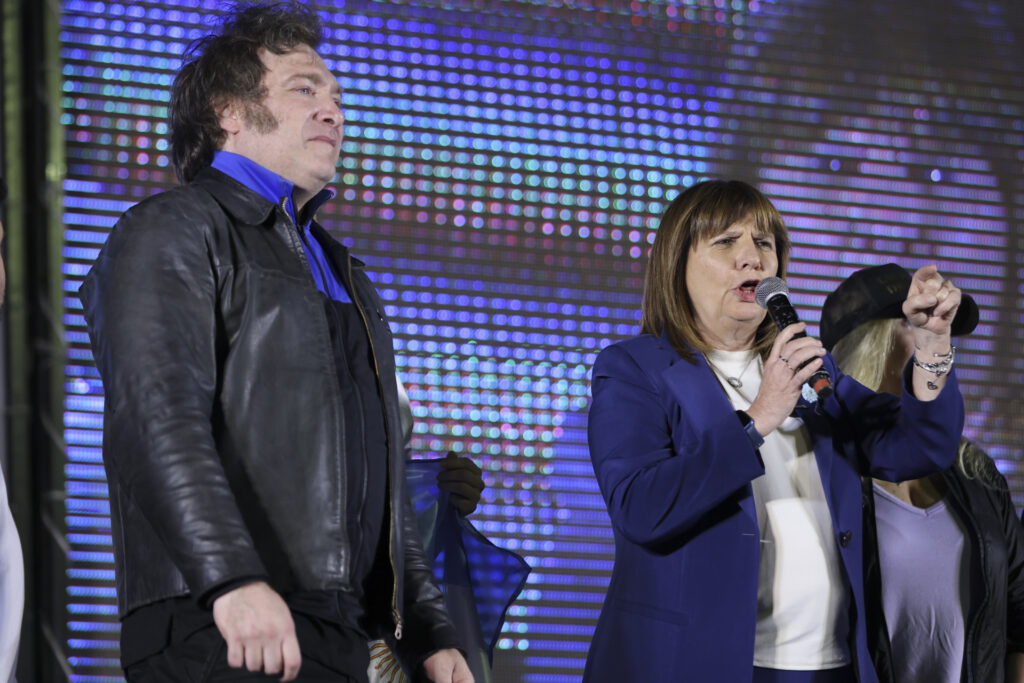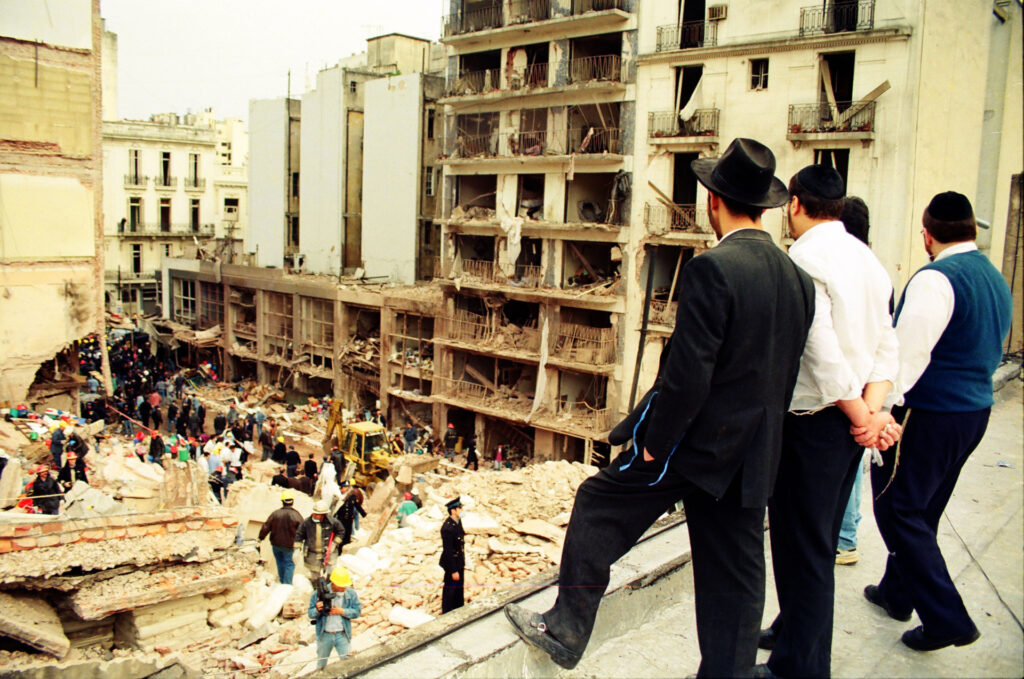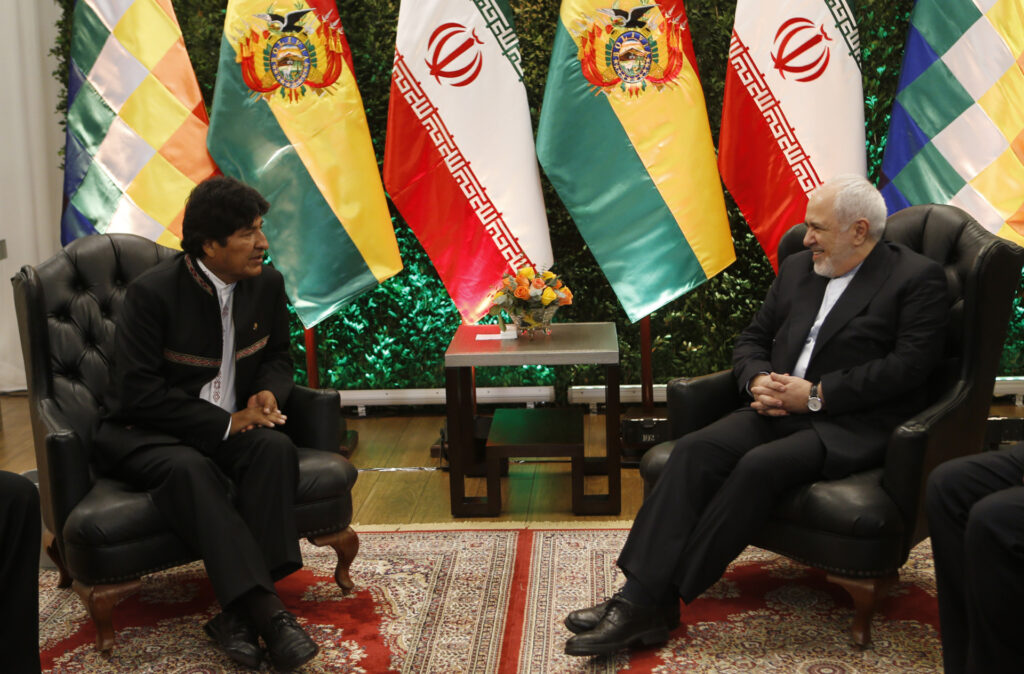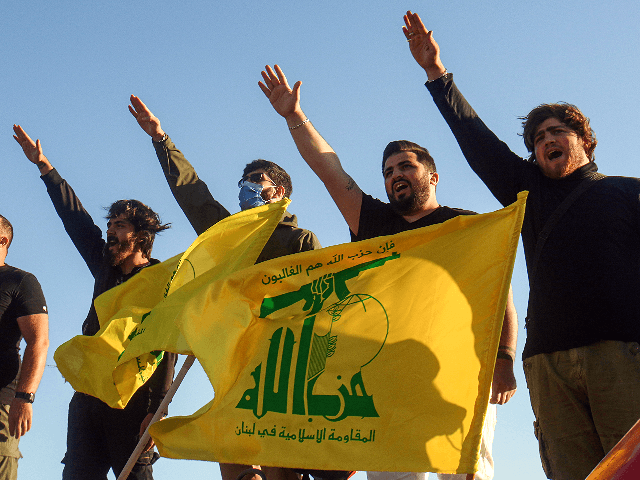Security Minister Patricia Bullrich of Argentina warned this week that the Shiite jihadist organization Hezbollah has greatly expanded its presence throughout South America.
Bullrich, in an interview given to the local Todo Noticias news channel on Sunday evening, stated that Iran’s unprecedented missile and drone attack on Israel prompted the Argentine government to raise its threat level and bolster security, especially in the northern tri-country border that Argentina shares with Paraguay and Brazil.

Former presidential candidate Patricia Bullrich addresses supporters standing next to Javier Milei, Liberty Advances coalition presidential candidate, during his closing campaign rally in Cordoba, Argentina, Thursday, Nov. 16, 2023. (Nicolas Aguilera/AP)
“Argentina has suffered two attacks and is in an area where there is an active presence of two forces that are allied to Iran, which are from Hezbollah that is in the triple border of Paraguay, Brazil and Argentina,” Bullrich said in the interview.
“There has also been a presence in Iquique, in the north of Chile, last year in Sao Paulo, Brazil, and a few weeks ago in Peru. And last year two people from Hezbollah were arrested in Sao Paulo,” she continued.
Bullrich was referring to reports published in 2011 that stated that U.S. authorities believed Hezbollah had established a presence in the northern Chilean city of Iquique, noting that “substantial information” indicated that Hezbollah was engaging in significant fund-raising in northern Chile. Bullrich also referenced the arrest of Hezbollah-linked individuals in the Brazilian city of Sao Paulo in November 2023.
The individuals arrested by Brazilian authorities stand accused of plotting terrorist attacks against Jewish community centers in response to Israel’s declaration of war against the Sunni terrorist organization Hamas following Hamas’s unprecedented October 7 attack on Israel.
Argentina, home to the largest Jewish community in South America, has been the victim of two terrorist attacks against Israeli targets in its territory, both suspected of being the work of the Iran proxy terror group Hezbollah. In 1992, Hezbollah members carried out a suicide bombing of the Israeli embassy in Buenos Aires, killing 29 people and leaving over 240 injured. In 1994, Hezbollah terrorists drove an explosive-filled van into the headquarters of the Argentine-Israeli Mutual Association (AMIA), killing 85 people and leaving hundreds more injured. The AMIA bombing was the deadliest terrorist attack in the Western Hemisphere prior to the September 11, 2001, attacks in the United States.

Jewish men, right, look on as rescuers sift through the rubble at the site of a car-bombing at the Asociacion Mutual Israelita Argentina (AMIA) Jewish Community Center in Buenos Aires, Argentina, on July 18, 1994. (Diego Levy/Bloomberg via Getty)
Last week, Argentine courts, after nearly three decades without legal movement on the issue, ruled to formally hold Iran and Hezbollah responsible for the terrorist attacks and declared them crimes against humanity, opening the way for the Argentine government to present a formal complaint at international courts against Iran.
Bullrich continued by expressing the Argentine government’s concerns about Bolivia and the secretive Memorandum of Understanding the country signed with Iran in July 2023, which included the purchase of Iranian-made drones allegedly meant to strengthen “territorial and border control.”
“It is on the Bolivian border where we see the highest level of alert and security in the country, because there has been a memorandum signed by Bolivia and Iran,” Bullrich said. “That pact allowed the presence of Iranian members of the Quds forces, which are combatant forces and integrate the armed branches of Iran, in the territory.”
“We are investigating if there are people who do not speak Spanish and have Bolivian passports,” she continued.
Experts have deemed Bolivia Iran’s “most successful” project to spread its influence in the region after the governments of socialist former President Evo Morales and his successor Luis Arce led Bolivia to establish deep ties with the rogue Islamic regime.

Bolivia’s President Evo Morales, left, speaks to Iran’s Foreign Minister Mohammad Zarif, in Santa Cruz, Bolivia Tuesday, July 23, 2019. (Juan Karita/AP)
Bullrich’s statements prompted complaints from far-left Chilean President Gabriel Boric, who announced on Tuesday that he will lodge a formal note of protest to Argentina over the Security Minister’s claims of Hezbollah’s presence in Iquique.
Boric stressed in a local interview that “Chile does not protect any terrorist group, neither in its territory nor outside of it.”
He said:
The Minister of Security of the government of Argentina, Patricia Bullrich, affirmed that a terrorist group called Hezbollah is [supposedly] present in northern Chile and other countries in the region. I demand that the Minister of Security of Argentina, if she has any background information, hand it over and collaborate, but she should not make any background information at random and quickly without proving anything at all.
Similarly, the Bolivian government responded to Bullrich’s remarks in a Foreign Ministry statement on Tuesday in which it rejected her comments as “wrong and unconscionable” and asserted that Bolivia is “a pacifist state.”
Christian K. Caruzo is a Venezuelan writer and documents life under socialism. You can follow him on Twitter here.

COMMENTS
Please let us know if you're having issues with commenting.